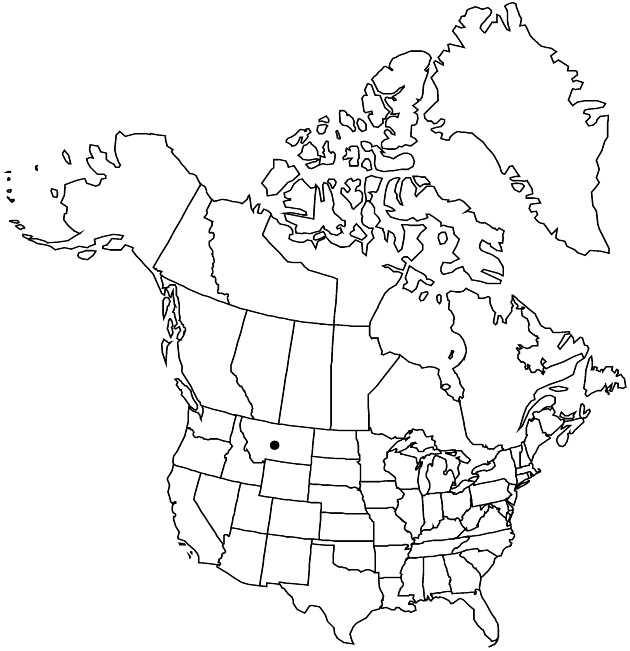Senecio spribillei
Sida 20: 511, fig. 1. 2002.
Perennials, 5–20 cm (caudices branched). Herbage glabrous. Stems usually single. Leaves progressively reduced distally (basal and proximal withering before flowering); petiolate (petioles purplish, weakly winged, 4–5 cm); blades broadly triangular-ovate to suborbiculate, 2–4(–5) × 2.5–3 cm, bases truncate to ± cuneate, margins coarsely spinulose-dentate (mid leaves similar, persistent). Heads nodding, 4–6. Calyculi of “few,” linear bractlets. Phyllaries ± 13, 7–9 mm, tips green. Ray florets “few”; corolla laminae ca. 7 mm (inconspicuous, equaling or barely surpassing phyllaries). Cypselae glabrous.
Phenology: Flowering Aug.
Habitat: Alpine rock ledges
Elevation: 2500 m
Discussion
Of conservation concern.
Senecio spribillei (from Snowshoe Peak, Cabinet Mountains) is similar in aspect to S. neowebsteri of the Olympic Mountains, Washington.
Selected References
None.
